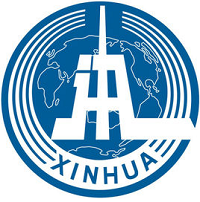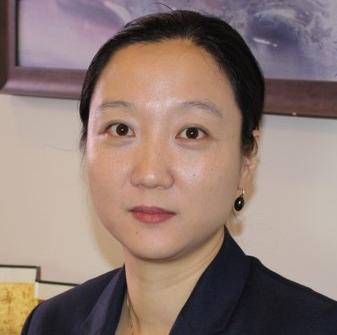First of all, some contents of the draft revolution ran counter to the fundamental principles of international law. It is true that the Western sponsors of the resolution agreed to delete statements demanding Syrian president Bashar to hand over power. They kept to their stand, however, on voicing ‘full support’ to the Arab League-backed scheme, which was in essence a statement demanding Bashar to go. In other words, they did not make any substantial compromise.
China does not take unprincipled sides with any party. Neither does it project the ruler of any country. It has never run into any difficulties when developing relations with a government elected by its people, a fact that has been proved time again in its diplomatic experiences since the Cold War and, in particular, the turmoil in West Asia and North Africa.
Should the Syrian government seal any agreement on political transfer with its opposition, or come to terms with the Arab League on Bashar’s resignation or handover of power, it will not create any problem for China. But what the Security Council resolution demanded was the oust of the leader of a sovereign country. A move going far beyond the UN body’s role and limit of power and falling out of tune with the UN charter, it best justified China’s veto of the resolution because at stake were the fundamental principles governing contemporary international relations and the foundation supporting the present-day stability of the international community.
Secondly, the draft resolution did not signify any constructive role in advancing the political course in Syria. Superficially, it called for the immediate start of political dialogues. But the outcome of such dialogues was already predictable: the Syrian government would be driven to the corner, while the opposition would be instigated to press for ever greater gains. This would only drive the parties concerned into standing farther apart from each other and resorting to fiercer violence against each other. What China has advocated is an immediate halt to violence by all parties and the brainstorming by the international community for a well-balanced and constructive political solution with ample room of maneuver for all parties concerned. Nothing but an inclusive solution will bring the parties concerned to the table for political dialogues.
Moreover, the Security Council adoption of a resolution running counter to the principles of the UN charter and allowing for free interpretation would be nothing less than starting the vicious dominoes of foreign armed intervention in the Syrian conflicts. Settlement of disputes through war will not only result in heavy civilian casualties and massive destruction of civic facilities, but also leave Syria with wounds hard to cure thereafter. Libya has served a good example in this regard, where the Security Council resolutions had been overstepped and the Security Council authorization had been abused. There, what had been originally meant to minimize civilian casualties had actually maximized them and what had been originally meant to arrest humanitarian catastrophes had actually freed more hideous ones. During the six-month war there, at least 25,000 Lybians got killed. Another case is the Iraqi war and the blasts taking place there almost every week over the recent 10 years. No one can tell the exact number of people killed there so far. Should a similar situation be allowed to develop in Syria?
China stands by the Arab League for its role in the Syrian issue, and appreciates its original purpose of settling the issue within its own framework instead of leaving it to foreign armed intervention. In the Security Council, China has taken an active part in the discussion of the scheme submitted by the Arab League, and kept in close contact with the latter, hoping its efforts would pay off. Should any resolution running counter to the fundamental principles of the UN charter gets through the Security Council, it is highly likely that the situation will not go as the Arab League has wished and totally run out of its control. In addition, not all its members share the same viewpoint on the issue. It was also the Arab League, for instance, that worked for the Security Council passage of Resolution 1973 on Libya. But the NATO action against Libya went so far beyond its expectation that its secretary general Amr Moussa openly blamed the bloc for violating the resolution with a military strike. But could the Arab League do anything about it by this time?
To be honest, the Arab League itself is widely divergent on the Syrian issue. China knows only too well that none of its member nations would like to see any continuation of blooding in Syria. China also hopes for an immediate end to the Syrian turmoil. It is precisely for this reason that China has said no to the resolution that would aggravate the Syrian situation and even recruit massive armed intervention from the outside.
As strategic partners, China and Russia do come together quite often to exchange views and coordinate actions on many international issues. In this case, however, China exercised its veto on its own judgment. China’s joining Russia to veto the Syrian resolution signifies their sharing of the same viewpoint on the Syrian issue and common concern about a possible aggravation of the political conflicts there. It is by no means a gesture to show its support to Russia.
Vetoing of a resolution that runs counter to the gist of the UN charter and fails to balance the interests of different parties will allow more time and greater space for diplomatic mediation. The constructive interactions to be orchestrated by the parties concerned during this rare time and space interval will determine the future direction of developments in Syria. The Syrian government should lend an ear to its people’s call for social reforms, and come to see that the current status quo can not last long. At the same time, the Syrian opposition should realize that whatever political framework they dream to put up in the future, total exclusion of the elite now in power would bring Syria no peace but war or external armed intervention, for which the Syrian people will have to pay a price for several generations. Should this happen, whoever comes to power will face a total mess hard to tidy up. Both the Arab League and the Gulf Cooperation Council should clearly understand that it benefits the whole Arab world to shield off external armed intervention. The United States and Europe should also be aware that once the Syrian situation gets out of control, the situation in the Middle East as a whole will also run away, a development that will benefit none because it will both baffle energy supply and bring forth extremist forces.
Qu Xing is President of the China Institute of International Studies (CIIS)



